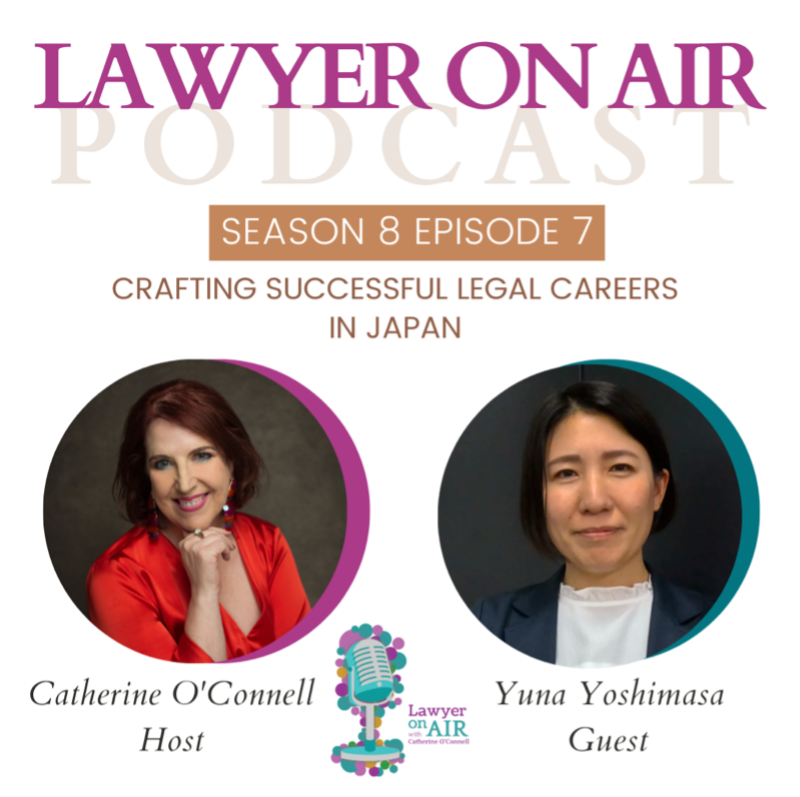Insights from Japan’s Legal Recruitment Market
This is your go-to resource for staying ahead with legal industry updates and legal career tips for the Japan market. Here, we share the latest industry news, hiring trends and career advice tailored for legal professionals in Japan.
Just Legal Insights – Featured Articles

Just Search Group has officially launched, bringing together specialist executive search expertise under a single, scalable brand serving the Japan market. The newly formed parent company encompasses Just Legal, a market-leading legal recruitment firm established in 2014, and introduces Just HR, its latest division dedicated to HR executive search. The creation of Just Search Group marks a strategic step toward delivering specialist search and recruitment services with a unified purpose. Led by Group CEO, Paul Cochrane, Just Search Group’s mission is to deepen its long-term partnerships while maintaining the high-quality, consultative service that clients across Japan have come to trust. Just HR, headed by co-founder and Managing Director Jason Lewis, starts with a clear focus: supporting organisations in their search for exceptional HR talent. The launch complements broader trends within the Japanese executive hiring market, where businesses are increasingly focused on employee experience, culture transformation and organisational resilience. Just HR is poised to support this shift by connecting forward-thinking employers with HR professionals who can lead meaningful change. From CHROs and HRBPs to specialists in Learning & Development, Employee Relations, and beyond, Just HR is designed to address the growing demand for capable HR leadership in Japan’s evolving market. With plans in motion to grow into additional professional sectors, Just Search Group is now focused on building a future-ready platform for delivering its singular style of executive search in Japan. “This is a pivotal moment,” said Cochrane. “Bringing Just Legal and Just HR together under Just Search Group sets a strong foundation for future growth into new professional verticals, while reinforcing our commitment to meticulous and human-centred search.” “Our clients have consistently told us that the real value lies in specialization,” said Jason Lewis. “Just HR was built in direct response to that need, giving clients a dedicated, knowledgeable partner for HR executive search. We’re excited to bring this level of depth and focus to the market.” For more information, visit justsearchgroup.com .

We are pleased to announce the release of the latest issue of our newsletter! Following the positive response to our previous issue, this edition focuses on the differences between in-house and external counsels. *** In the preparation of this issue, we had the privilege of interviewing seven lawyers from both law firms and corporations. Additionally, we would like to extend our heartfelt gratitude to Ms. Mariko Mimura from Nishimura & Asahi for her invaluable supervision. We were fortunate to gather insights from distinguished professionals with experience in both law firms and corporations, as well as those who have experience working with both Japanese and international companies. We deeply appreciate the cooperation of everyone involved. ***

Paid Marketing Internship Opportunity (Creative & Digital Focus) Just Legal K.K., a leading legal search consultancy firm in Tokyo, is expanding and looking for a proactive Marketing Intern to join our team. We are seeking a dynamic individual with a passion for engaging the younger generation through innovative marketing strategies. Responsibilities: Develop and implement creative marketing strategies aimed at engaging new audiences. Create and edit video/photo content for social media and promotional material. Assist in the planning and execution of digital marketing campaigns. Collaborate with the team to brainstorm new ideas and approaches for outreach. Requirements: Strong interest in digital marketing and content creation. Experience in video and photo editing. Proactive and able to work independently on projects. A creative mindset and ability to think outside the box. This is a great opportunity to gain hands-on experience in a fast-growing firm and make a real impact. For applications and information contact Edgar Salazar – edgar.salazar@justlegal.co.jp

Our team member Yuna was featured by a prominent podcaster in Japan! In the Podcast Yuna and the host Catherine explore the followings; What’s HOT in today’s legal job market in Japan, Most wanted Skills , and Emerging sectors like HealthTech and bio ventures If you’re a legal professional, this episode will give you valuable insights into the future of law in Japan. Don’t miss out - tune in now! Listen here: Podcast Link Watch on YouTube: YouTube Link

A law firm client we met recently shared the struggles they were having with hiring associates. Their biggest competition is not other law firms, but in-house opportunities. In-house roles often attract candidates who want a better work-life balance, a stable salary, and closer involvement with a single business. However, we are seeing an increasingly number of lawyers who have spent years in-house, transition back to private practice. Here are the reasons why: 1. Desire for Varied Legal Work “When I work for my company, I only have one client. But if I work for a law firm, I get to work with multiple clients or various projects.” One of the primary drivers for a return to private practice is the scope and variety of legal work available. In-house lawyers often deal with a narrower set of issues specific to the industry or company they work for. While this can be beneficial for developing deep expertise in certain areas, it can also become repetitive or limiting over time. Private practice, on the other hand, offers the chance to work on a broader range of cases and clients, covering multiple industries and legal issues. This diversity can be intellectually stimulating and more aligned with a lawyer’s interests in continuing legal education and varied legal challenges. 2. Greater Control Over Career Progression “If I stay at my current company, I won’t get promoted unless the senior counsel moves up or out.” Some in-house counsel positions have more limited upward mobility compared to private practice. For ambitious lawyers who want to rise through the ranks, build their own practice, or achieve partnership, private practice can offer more autonomy and clearer career progression pathways. The return to private practice lets them shape their own career trajectory, take on leadership roles, or specialize in areas they’re passionate about. 3. Opportunity to Build a Personal Brand “I would like to be seen as a specialist in my practice area.” Most often, an in-house legal counsel’s identity is tied to the company they represent. In private practice, lawyers have the opportunity to build and cultivate a personal brand, and the ability to grow their professional stature within the legal market is a significant motivator for making the switch. 4. Opportunity to Help Establish a New Practice “I want to leverage the specialized experience I’ve gained and help establish a practice from scratch.” Some lawyers leave their previous law firms to gain more in-depth experience in a particular industry. After a few years in private practice, once they become known as an expert in the field, lawyers can also seize the opportunity to help establish or grow a new practice area within a firm by leveraging the expertise, industry insights, and valuable connections they’ve gained as an in-house counsel. This allows them to play a pivotal role in shaping the firm’s direction while building on their specialized knowledge and experience. 5. Compensation and Financial Incentives I’ve heard many candidates explain the reason they want to go back into private practice is to provide more financial stability for their family. Since the compensation structure in private practice are often based on billable hours, client acquisition, and firm performance, compensation can be much higher than in-house, especially for senior lawyers. 6. Reconnection with Legal Expertise “I don’t want to have to keep dealing with non-legal related matters.” In-house counsel roles often require lawyers to wear many hats, including handling compliance, risk management, and business strategy. Some lawyers find that this shift away from pure legal work causes them to lose touch with their core legal skills. A move back to private practice allows them to refocus on being a lawyer first and foremost, often with more direct involvement in complex litigation, negotiations, or regulatory work. 7. Sense of Achievement “Even if I did a great job closing the deal or winning a case, most often my supervisors from non-legal departments didn’t understand and appreciate the work that I did.” Professional feedback is more frequent and performance-driven, with clear benchmarks like client satisfaction, billable hours, and revenue generation. This regular evaluation fosters a strong sense of progress, driving motivation and continuous growth, making private practice a rewarding environment for those seeking achievement and career development. On the associate level, the partner you are working with on a deal may have more knowledge on the subject and can provide immediate feedback and suggestions on the legal issues you are tasked to complete. As with any career change, moving back to private practice comes with its own challenges: 1. Business development and acquiring clients. In-house lawyers often lack the extensive client networks that private practice attorneys cultivate over time, making it harder to bring in business. 2. Skill alignment can be an issue. In-house roles tend to focus on business operations, risk management, and internal advisement, while private practice requires proficiency in billable work, business development, and courtroom advocacy. Reacquiring or sharpening these skills can be tough. 3. Perceived gap in recent experience, especially in litigation or specialized legal areas. Some firms might be skeptical about a lawyer’s ability to reintegrate into the fast-paced, client-centric environment of private practice. 4. Work-life balance can shift significantly. Private practice typically involves longer hours and higher pressures to meet billable targets, a big contrast to the often more predictable schedules of in-house roles. Conclusion For many lawyers, returning to private practice after working in-house can seem like the right move, particularly when considering long-term career goals, such as working on more varied legal work, having greater career control, financial incentives, personal branding, or a reconnection with core legal skills. However, the transition is not without its challenges. Lawyers may need to rebuild a client base, adjust to the high demands of billable hours, and refresh skills specific to private practice. Despite these obstacles, this shift is a reminder that legal careers are not linear. With careful planning and strategic effort, many paths can lead to success, growth, and fulfillment.






